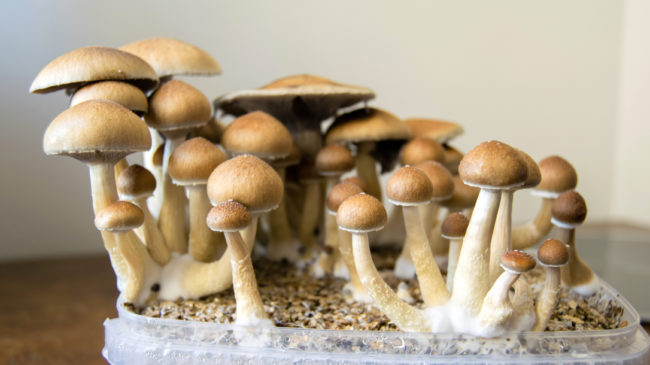Washington DC Initiative 81: Entheogenic Plants and Fungus Measure
Summary
Initiative 81 would ask that D.C. law enforcement treat the use, possession, non-commercial cultivation, and distribution of psychedelic plants like magic mushrooms and ayahuasca as one of its lowest priorities. The measure does not propose full decriminalization or legalization, but it would ask the D.C. attorney general and U.S. attorney for D.C. not to prosecute residents who use these substances or grow them for personal use.
Fiscal Impact
There is currently no fiscal impact statement for Initiative 81.
Proponents’ Argument For
According to supporters of Initiative 81, entheogenic plants can help alleviate the pain and suffering from mental health conditions, such as major depression and severe anxiety. These substances can provide great benefits where more traditional remedies have failed. Those seeking this form of pain relief shouldn’t be the focus of criminal prosecutions especially as they are not inflicting harm to others. As for the abuse of these substances, it makes more sense to treat addiction and problematic use as a medical rather than a criminal problem. No one should be imprisoned for using natural medicine to ease their pain. People who could benefit from these natural treatments include those dealing with postpartum depression and patients suffering from the non-physical effects of advanced-stage cancer. The benefits of psychedelics have, to an extent, been demonstrated in clinical trials.
Opponents’ Argument Against
Opponents argue that while some people may benefit from the use of psychedelics there are still significant questions about their short-term and long-term impacts on health. As it stands, the public health case in support of psychedelics as a therapeutic treatment has not been made. Degrading enforcement against the use of these drugs to the police’s lowest priority will encourage more people to take these substances, acting as an effective sanction for their use. Should the initiative pass there will be little disincentive for people not to use these drugs, potentially putting themselves and others at risk.
Discussion
Initiative 81 is a modest proposal by design. Thanks to a provision in congressional spending legislation known as the “Harris rider,” D.C. is barred from creating a legal regime for schedule 1 substances. It is because of the Harris rider that D.C. failed in its attempts to introduce a regulated cannabis market. The rider is named after Rep. Andy Harris, a Maryland Republican who is a vocal opponent of marijuana legalization and also opposes Initiative 81. In an interview with the New York Post, Harris said “We know, of course, once you make it a very low enforcement level and encourage prosecutors not to prosecute it, what would prevent people from using hallucinogens, getting behind the wheel of a car and killing people?”
The answer is the same for those who drink alcohol or use any other intoxicating substance. Most people do not drive while intoxicated regardless of the legal status of any particular product. Doing so puts themselves and others at risk of harm and puts the driver at risk of prosecution. The assumption behind Harris’ statement appears to be that if people are not hemmed in by criminal law they will be reckless and put others in danger. There is little evidence to suggest this is the case.
There is a substantial and growing literature suggesting psychedelics can help treat people with depression. The Food and Drug Administration (FDA) has designated psilocybin, which is the hallucinogenic compound found in magic mushrooms, a “breakthrough therapy,” accelerating the process of research and approval.
Police and criminal justice reform are hot points of discussion in Washington, DC, and the rest of the country right now. With a rise in homicides in 2020, it makes little sense for the city’s police force to pursue individuals causing no harm to others through their use of psychedelics.
This measure would not be without precedent. Denver, Oakland and Santa Cruz, California, have all passed laws decriminalizing the use of psychedelics or relegating the enforcement against their use to police departments’ lowest priority.
Voters’ Guide to Other Marijuana Legalization and Drug Policy 2020 Ballot Initiatives
Voters’ Guides to 2020 Ballot Initiatives on Other Policy Topics

